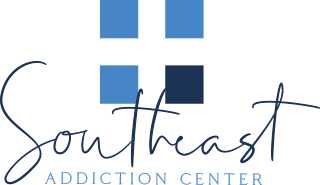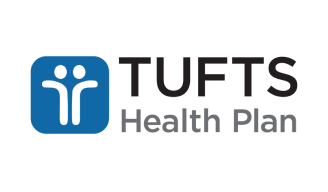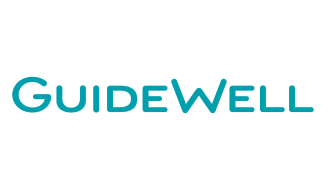
Nashville, Tennessee, United States
Southeast Addiction Center Tennessee
Verified
Verified
This provider’s information has been quality-checked by Recovery.com’s Research Team for accuracy and completeness, including center verification through appropriate third-party organizations.
Joint Commission Accredited
The Joint Commission accreditation is a voluntary, objective process that evaluates and accredits healthcare organizations (like treatment centers) based on performance standards designed to improve quality and safety for patients. To be accredited means the treatment center has been found to meet the Commission's standards for quality and safety in patient care.
Provider's Policy
Southeast Addiction Center participates with many insurance companies as an out-of-network provider.
Estimated Cash Pay Rate
The cost listed here ($1,000/day) is an estimate of the cash pay price. Center pricing can vary based on program and length of stay. Contact the center for more information. Recovery.com strives for price transparency so you can make an informed decision.
Highlights from the Center
Highlights
These highlights are provided by and paid for by the center.
Customized Treatment Plans
Holistic Approach
12-Step Approach
Addiction Recovery
About Southeast Addiction Center Tennessee
Southeast Addiction Center illuminates the way forward for clients with substance use disorders. Under the guidance of skillful and caring clinical therapists and recovery experts, they provide everything clients need from start to finish. Detox, inpatient, and outpatient programs are available at Southeast Addiction Center to promote lasting change.
Find Strength and Create a Support System
For each client at Southeast Addiction Center, the goal is the same— discover inner strength and build a robust support system. With the help of evidence-based therapies and medication-assisted treatment (MAT), clients learn to challenge thoughts that align with their old way of thinking. They begin to recognize addiction as a persistent condition affecting brain function and behavior. Through expert guidance and peer support, clients harness their own inner strength and learn to rely on the community of peers around them who are going through the same thing.
Access Ongoing Care beyond Clinical Treatment
Through a robust suite of specialized services, Southeast Addiction Center helps sustain client sobriety. Drug screening and medication management keep clients accountable during and after treatment. For those who are navigating legal issues, certified addiction counselors conduct DUI evaluations. For those discharged from treatment, weekly telehealth sessions via Skype provide ongoing engagement from the comfort of home. These additional services underscore their commitment to client well-being far beyond the therapy room.
Recharge and Rediscover Sense of Self
Southeast Addiction Center offers a clean and comfortable space to provide a sense of peace and privacy as clients pursue recovery. Nourishing meals are prepared fresh on-site and catered to dietary needs. They also offer plenty of recreational activities like games, art, and outdoor spaces to help clients recharge and connect with themselves and others.
Read More

Insurance Accepted
Provider's Policy:Southeast Addiction Center participates with many insurance companies as an out-of-network provider.
Discover a Scientifically-Proven Path to Sobriety
For clients who are looking for support in their efforts to overcome addiction, Southeast Addiction center provides medication-assisted treatment (MAT). This safe and effective option backed by research can be a valuable tool while working towards a healthier, substance-free life.
Sustain Sobriety with the Alumni Network
The alumni program at Southeast Addiction Center helps graduates thrive. Clients stay connected with peer support, recovery meetings, and fun sober events. Because the journey to sobriety is best shared, these things strengthen sobriety and help prevent relapse.
Find Calm Within
Beyond traditional therapies, Southeast Addiction Center offers unique avenues for self discovery— nature immersion, nutritional guidance, creative expression, and mindfulness practices. By nurturing clients’ overall well-being, they uncover the root cause of addiction and build practices that contribute to a fulfilling, sober lifestyle.

Center Overview
Estimated Cash Pay Rate
Young Adults
Emerging adults ages 18-25 receive treatment catered to the unique challenges of early adulthood, like college, risky behaviors, and vocational struggles.
Men and Women
Men and women attend treatment for addiction in a co-ed setting, going to therapy groups together to share experiences, struggles, and successes.
Professionals
Busy, high-ranking professionals get the personalized treatment they need with greater accommodations for work, privacy, and outside communication.
Veterans
Patients who completed active military duty receive specialized treatment focused on trauma, grief, loss, and finding a new work-life balance.

Treatment Focus
This center treats primary substance use disorders and co-occurring mental health conditions. Your treatment plan addresses each condition at once with personalized, compassionate care for comprehensive healing.
Treatment
Specializations
Alcohol
Using alcohol as a coping mechanism, or drinking excessively throughout the week, signals an alcohol use disorder.
Cocaine
Cocaine is a stimulant with euphoric effects. Agitation, muscle ticks, psychosis, and heart issues are common symptoms of cocaine abuse.
Ecstasy
Ecstasy is a stimulant that causes intense euphoria and heightened awareness. Abuse of this drug can trigger depression, insomnia, and memory problems.
Heroin
Heroin is a highly addictive and illegal opioid. It can cause insomnia, collapsed veins, heart issues, and additional mental health issues.
Medication-Assisted Treatment
Combined with behavioral therapy, prescribed medications can enhance treatment by relieving withdrawal symptoms and focus patients on their recovery.
Prescription Drugs
It's possible to abuse any drug, even prescribed ones. If you crave a medication, or regularly take it more than directed, you may have an addiction.
Veterans
Patients who completed active military duty receive specialized treatment focused on trauma, grief, loss, and finding a new work-life balance.
Treatment Services
Day Treatment
In a PHP, patients live at home but follow an intensive schedule of treatment. Most programs require you to be on-site for about 40 hours per week.
Intensive Outpatient Program
In an IOP, patients live at home or a sober living, but attend treatment typically 9-15 hours a week. Most programs include talk therapy, support groups, and other methods.
Outpatient
During outpatient rehab, patients attend a structured treatment program while continuing to live at home.
Sober Living
These structured living environments help people transition out of rehab. Residents have more freedom than they do during rehab, but still follow certain rules.
Approaches
Evidence-Based
A combination of scientifically rooted therapies and treatments make up evidence-based care, defined by their measured and proven results.
Experiential
Expressive tools and therapies help patients process past situations, learn more about themselves, and find healing through action.
Medical
Medical addiction treatment uses approved medications to manage withdrawals and cravings, and to treat contributing mental health conditions.
Personalized Treatment
The specific needs, histories, and conditions of individual patients receive personalized, highly relevant care throughout their recovery journey.
Therapies
1-on-1 Counseling
Patient and therapist meet 1-on-1 to work through difficult emotions and behavioral challenges in a personal, private setting.
Experiential Therapy
With this approach, patients heal by doing. Therapists help patients process difficult emotions to speak, using guided activities like art or dance.
Family Therapy
Family therapy addresses group dynamics within a family system, with a focus on improving communication and interrupting unhealthy relationship patterns.
Life Skills
Teaching life skills like cooking, cleaning, clear communication, and even basic math provides a strong foundation for continued recovery.
Medication-Assisted Treatment
Combined with behavioral therapy, prescribed medications can enhance treatment by relieving withdrawal symptoms and focus patients on their recovery.
Motivational Interviewing
Based on the idea that motivation to change comes from within, providers use a conversational framework to discover personalized methods for change.
Relapse Prevention Counseling
Relapse prevention counselors teach patients to recognize the signs of relapse and reduce their risk.
Twelve Step Facilitation
12-Step groups offer a framework for addiction recovery. Members commit to a higher power, recognize their issues, and support each other in the healing process.
Substances We Treat
Alcohol
Using alcohol as a coping mechanism, or drinking excessively throughout the week, signals an alcohol use disorder.
Benzodiazepines
Benzodiazepines are prescribed to treat anxiety and sleep issues. They are highly habit forming, and their abuse can cause mood changes and poor judgement.
Co-Occurring Disorders
A person with multiple mental health diagnoses, such as addiction and depression, has co-occurring disorders also called dual diagnosis.
Cocaine
Cocaine is a stimulant with euphoric effects. Agitation, muscle ticks, psychosis, and heart issues are common symptoms of cocaine abuse.
Drug Addiction
Drug addiction is the excessive and repetitive use of substances, despite harmful consequences to a person's life, health, and relationships.
Ecstasy
Ecstasy is a stimulant that causes intense euphoria and heightened awareness. Abuse of this drug can trigger depression, insomnia, and memory problems.
Heroin
Heroin is a highly addictive and illegal opioid. It can cause insomnia, collapsed veins, heart issues, and additional mental health issues.
Psychedelics
Hallucinogenic drugs—like LSD—cause euphoria and increased sensory experiences. When abused, they can lead to depression and psychosis.
Methamphetamine
Methamphetamine, or meth, increases energy, agitation, and paranoia. Long-term use can result in severe physical and mental health issues.
Aftercare
Experience
Personal Amenities
Special Considerations
Activities
Learn more about Southeast Addiction Center Tennessee
Testimonial
This place is one of the best treatment centers in Nashville! There is genuine care given here and all of the staff are friendly and great support for recovery. Shoutout to the counselors, case managers, and techs, they’ve all changed my life for the better!
George N.
We love hearing about your treatment experience
Help individuals and families seeking treatment by sharing your first-hand experience with this treatment provider. Review Guidelines.









































